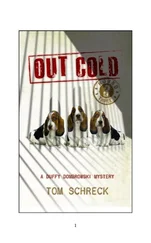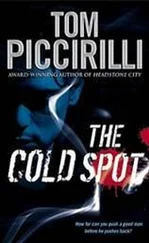I had never seen such a verdant country in all my life. Everywhere the vegetation was bursting from bud to leaf. There were great swathes of woodland, mostly oak and ash, and between the forests stretched open country that brimmed with green. Much of the ground was soggy, but our track followed a ridge of high ground that was better drained and on either hand I looked out across a gently rolling landscape with thorn trees so heavy with white blossoms that the sudden gusts of winds created little snowstorms of white petals that drifted down onto the path. The verges on each side of the track were speckled with small spring flowers in dark blue, pale yellow and purple, and every bush seemed to hold at least one pair of songbirds so intent on their calls that they ignored our approach until we were nearly close enough to touch them. Even then they only hopped a few feet into the upper branches to continue to announce their courting. The weather itself was utterly unpredictable. In the space of a single day we experienced all seasons of the year. A blustery grey morning brought an autumn gale that buffeted us so fiercely that we had to walk leaning into the blast, and the squall was succeeded by a spring-like interval of at least an hour when the wind suddenly dropped and we heard again the shouting of the small birds, only for a swollen black cloud to throw down on us a rattling attack of winter sleet and hail that had us pulling up the hoods of our cloaks and pausing for shelter under the largest and leafiest tree. Yet by mid-afternoon the clouds had cleared away entirely and the sunshine was so hot on our faces that we were rolling up our cloaks to tie them on top of our packs as we tramped, sweating, through the puddles left by the recent downpour.
After all, Donnachad proved to be a rather good-natured man and not the least vindictive. On the third day of the journey he abandoned the practice of holding my lead chain, and let me walk along with the rest of his band, though I still wore the fetters on each wrist. This was particularly painful for my left arm because the hand in which I had held the staff of the black raven banner when I was struck was puffed up and swollen and had turned an ugly purple-yellow. At first I had thought I would lose the use of the fingers entirely, for I could not bend them and I had no sense of touch. But gradually the swelling receded and my hand began to mend, though it would always ache before the onset of rain. The small bones, I suppose, had been fractured and never knitted together properly.
We passed a succession of small hamlets, usually set off at some distance to one side of the road. They were prosperous-looking places, groups of thatched farms and outbuildings often protected by a palisade, but their vegetable patches and grazing pastures were outside the defensive perimeter so evidently the land was not entirely lawless. From time to time Donnachad and his men turned aside to tell the farmers about the outcome of the great battle and to purchase food, paying with minor items of their spoil, and I looked for the barns where the farmers stored the winter hay for feeding their cattle, but then realised that the Irish winters were so mild that the herders could allow the cattle to graze outside all year long. We were travelling along a well-used road, and frequently met other travellers coming towards us — farmers with cattle on their way to a local market, pedlars and itinerant craftsmen. Occasionally we met a ri tuathre, a chieftain one step up the hierarchy from Donnachad. These mid-ranking nobles ruled over several smaller tuaths, and whenever we met one on the road I noted how Donnachad and his people stood respectfully aside to allow the ri tuathre to trot past on his small horse, accompanied by at least twenty outriders.
After the fourth or fifth of these self-important little cavalcades had splashed past us, the hooves of their horses sprinkling us with muddy water from the puddles, I ventured to ask Donnachad why the ri tuathre travelled with such large escorts when the land seemed so peaceful.
'It would be very wrong for a ri tuathre to travel alone. It would diminish the price of his face,' Donnachad answered.
'The price of his face?' I enquired. Donnachad had said 'log n-enech', and I knew no other way to translate it.
'The price of his honour, his worth. Every man has a value whenever he is judged, either in front of the arbitrators or by his own people, and a ri' - and here he sucked in his breath and tried to look a little more regal, though that was difficult in his shabby and mud-spattered clothes - 'should always act in measure with the price of his face. Otherwise there would be anarchy and ruin in his tuath.'
'So what would be the price of Cormac's face?' I meant this as a joke. I had noted that the Irish have a quick sense of humour and Cormac, one of Donnachad's cliathaires, was particularly ugly. He had bulging eyes, broad flat nostrils, and an unfortunate birthmark running down the left side of his face from his ear to disappear under his shirt collar. But Donnachad took my question entirely seriously. 'Cormac is a cow-freeman of good standing — he has a half-share in a plough team — so his face price is two and a half milch cows, rather less than one cumal. He renders me the value of one milch cow in rent every year.'
I decided to take my luck a little further. A cumal is a female slave, and Donnachad's reply would have some bearing on my own future as his property. 'Forgive me if I am being impolite,' I said, 'but do you also have a face price? And how would other people know what it was?'
'Everyone knows the face price of every man, his wife and his family,' he answered without even a moment's pause for thought, 'from the ri tuathre whom we saw just now, whose honour is eight cumals, to a lad still living on his parent's land whose face would be valued at a yearling heifer.'
'Do I have a face price too?'
'No. You are doer, unfree, and therefore you have neither price nor honour. Unless, that is, you manage to obtain your freedom and then by hard work and thrift you accumulate enough wealth. But it is easier to lose face price than to gain it. A ri endangers his honour if he even lays his hand to any implement that has a handle, be it hammer, axe or spade.'
'Does that include using a sword hilt as a mallet?' I could not refrain from answering, and Donnachad gave me a cuff around the head.
It was on the fourth day of our walk that I had my most notable encounter with this strange Irish notion of face price. We came to a small village where normally we might have stopped and bought some food. Instead we marched straight forward even though, as I knew, our supplies were running low. The brisk pace made my
back hurt. It was still sore from the blow received in the battle, but my companions merely told me to hurry up and not delay them and that I would soon have medicine to reduce the pain. They quickened their pace and looked distinctly cheerful as if anticipating some happy event. Shortly afterwards we came in sight of a building, larger than the usual farmhouse and set much closer to the road. I saw that it had a few small outhouses, but there were no cattle stalls nor any sign of farming activity around it. Nor did it have a defensive palisade. On the contrary, the building looked open to all and very welcoming. Without a moment's hesitation my companions veered from the track, approached the big main door and, barely pausing to knock, pushed their way inside. We were in a large, comfortable room arrayed with benches and seats. In the centre of the room a steaming cauldron hung over a fire pit. A man who was evidently the owner of this establishment came forward to greet Donnachad most warmly. Using several phrases of formal welcome, he invited him to sit down and take his ease after the weariness of the highway. He then turned to each of the cliathaires — ignoring me and Donnachad's servant, of course — and invited them likewise. Scarcely had our group found their seats than our host was providing them with flagons of mead and beer. These drinks were soon followed by loaves of bread, a small churn of butter and some dried meat. There was even some food for myself and Donnachad's elderly servant.
Читать дальше








